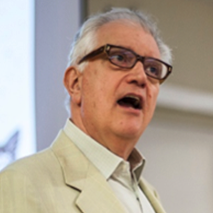Poking through the detritus of this week’s federal election results, the general contours of its impacts have emerged although the specific detail is yet to be refined.
The lack of change in total seat counts suggests that both the Liberals and the Conservatives will be held accountable in different ways.
Mr. Trudeau will need to find a way to recover from the personal character scars inflicted effectively by his opponents during the campaign. The party has a proven track record of reinventing itself; the search to attract new star candidates and a clearer post pandemic economic focus starts now.
The smouldering internal Conservative policy debate over the long term rewards of shifting from Harper lite to Liberal lite ones will likely flare up and consume the agenda for the next few months. That conflict may well decide Mr O’Toole’s future.
The next scene of the Green’s internecine warfare will determine not only Annamie Paul’s leadership but the party’s future itself.
While a post-pandemic populist party may be difficult to sustain nationally, the People’s Party may leave a more lasting impact on the shape of provincial politics in Alberta and Saskatchewan.
Despite an improved campaign, Mr. Singh still has to manage the expectations of critics for not returning the federal NDP to its halcyon days under Mulcair and Layton. How can the NDP avoid being squeezed again in future elections, given its likely support of the whole Liberal minority agenda beyond a few calculated tweaks? Will this necessitate yet another internal review of whether the NDP best serves as a party or a movement?
Several truisms about political campaigning have also been reinforced that our chattering classes including the media would do well to remember in their future election analysis.
Campaigns do matter, no matter the pre-election polls. Mr. O’Toole’s initial well calibrated campaign shift to the political centre including the early release of an un-costed platform appeared to take the Liberals and media off-guard.
The resurrection of Liberal fortunes from mid-campaign doldrums remind us that even short campaigns are marathons, not sprints; victory is never declared after three weeks.
Both Mr Trudeau and Mr. Singh proved to be formidable campaigners; Mr. O’Toole’s interventions increasingly lacked spontaneity .
Did the Conservatives peak too early? Did their early success focus more media attention on the inconsistencies in their platform and drive the Liberals to unveil their time tested and proven ‘fear ‘strategy to drive progressive voters their way (mid-town Toronto, as well as Vancouver)?
Political apparatchiks are constantly reminded that the final vote shift, especially among undecideds, takes place in the last 5 to 10 days of the campaign. A summer election reinforces this conclusion even more because most citizens are not paying critical attention at the outset of the call.
The quality of local candidates and incumbents’ effective attention to constituency needs between elections counts even more when faced with negative reactions at the door to an unpopular leader. Those are factors harder to quantify in aggregated polling.
While the Liberals lost a couple of so-called swing ridings (e.g. Peterborough Kawartha), they retained others (Oakville) in the competitive constituencies of the 905 for these very reasons.
Another consequential lesson is that ground games do matter, especially when dealing with pandemics and lower voter enthusiasm.
Identifying each party’s vote and getting them to the polls trumps amassing Tik Tok followers, likes or dislikes on Twitter, or general regional or national polling swings.
According to numerous media reports, a number of Conservative candidates could not find sufficient volunteers for their all-important E-day teams.
For the third federal election in a row, we are reminded in a first past the post system that efficiency of votes counts more to win a larger number of seats than racking up large majorities in a number of ridings that falsely skew the aggregated numbers.
Managing surprise events remains an ever present reality. While Afghanistan and the Delta variant dominated the early news, the provincial Tory vaccine passport flip flops refocused the campaign from the phoney war about the need for an election during the pandemic to the more Liberal friendly issue of management of the crisis. Indeed, it can be argued that Mr Kenney cost the Conservative campaign its national momentum at a critical juncture of the election.
Looking forward, Liberal last minute musings about changing the first past the post electoral system [where have we heard this before] and the likelihood of the broad implementation of the Liberals child care scheme with the remaining provinces may prove to be even more existential threats to the Conservative goal to topple the current Liberal regime.
Make no mistake. Beyond the numbers, a lot has changed in Canadian politics.






